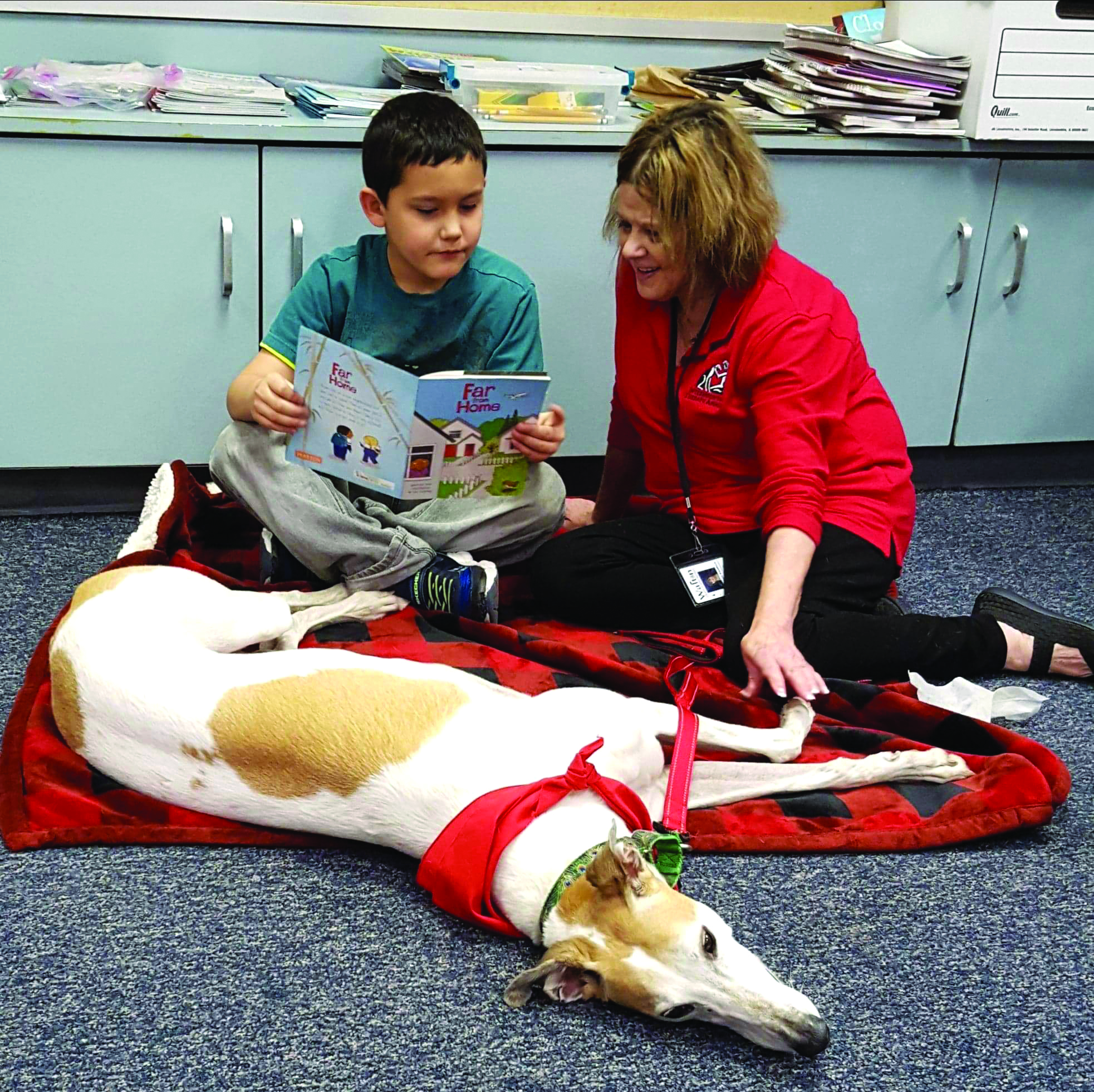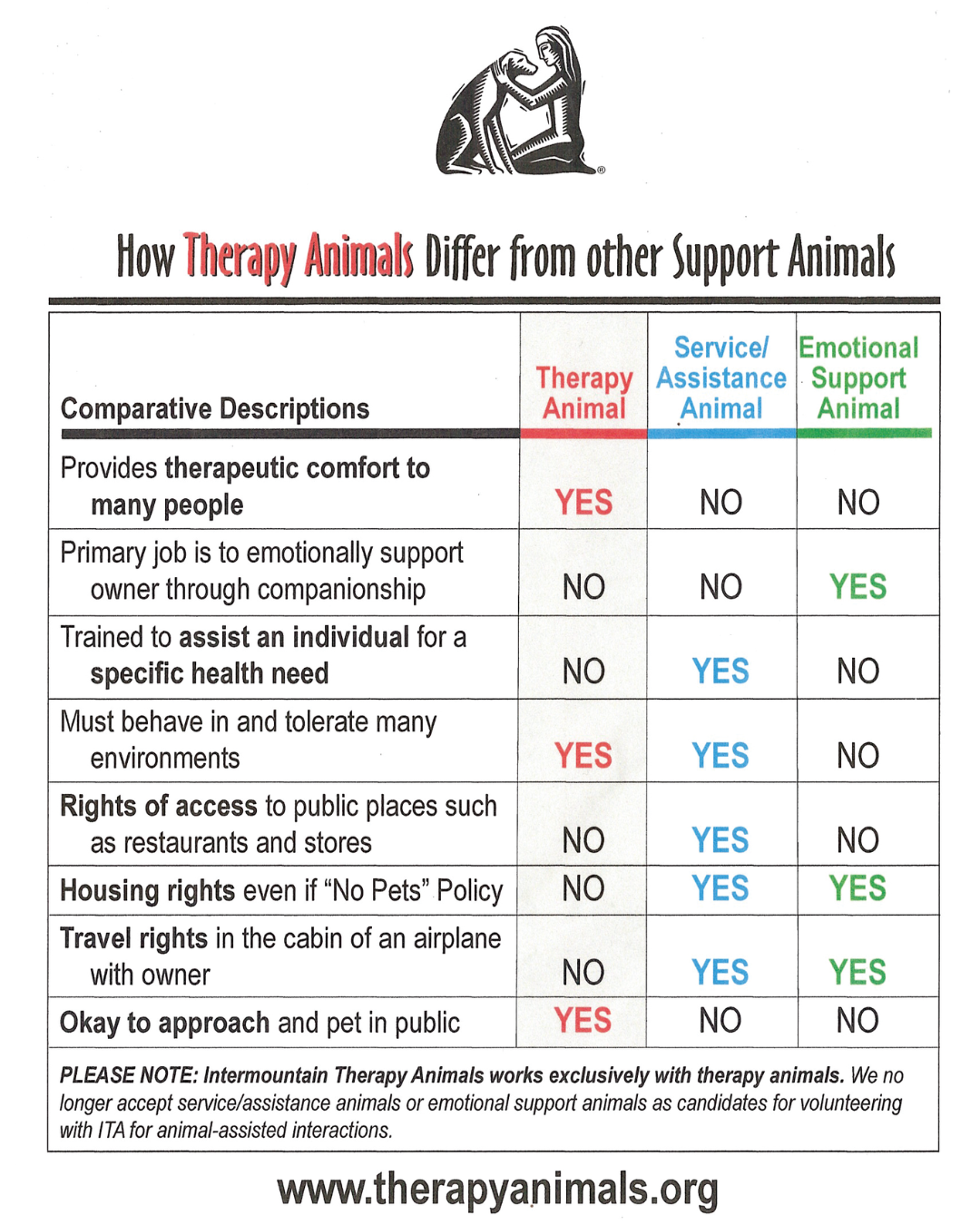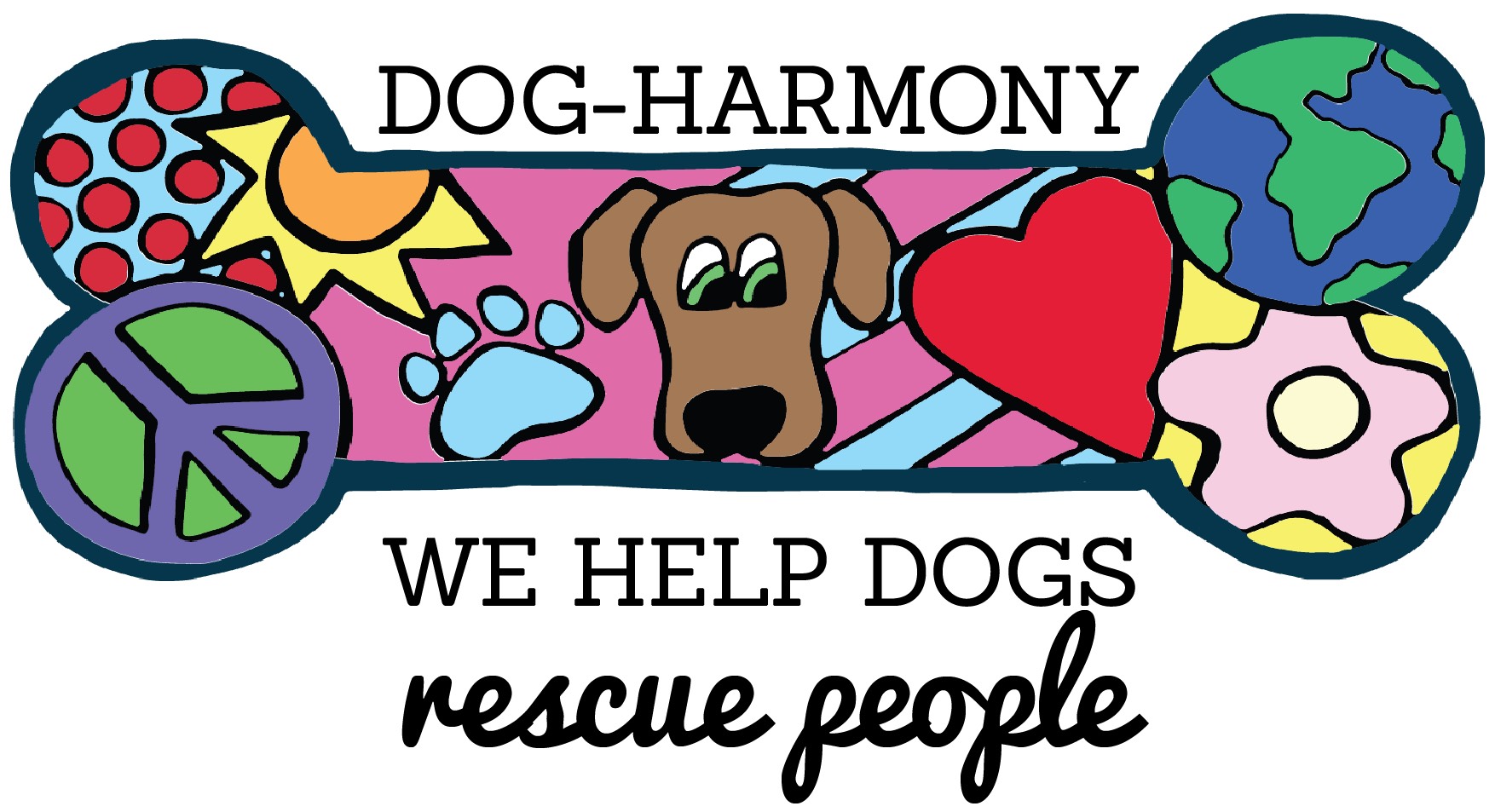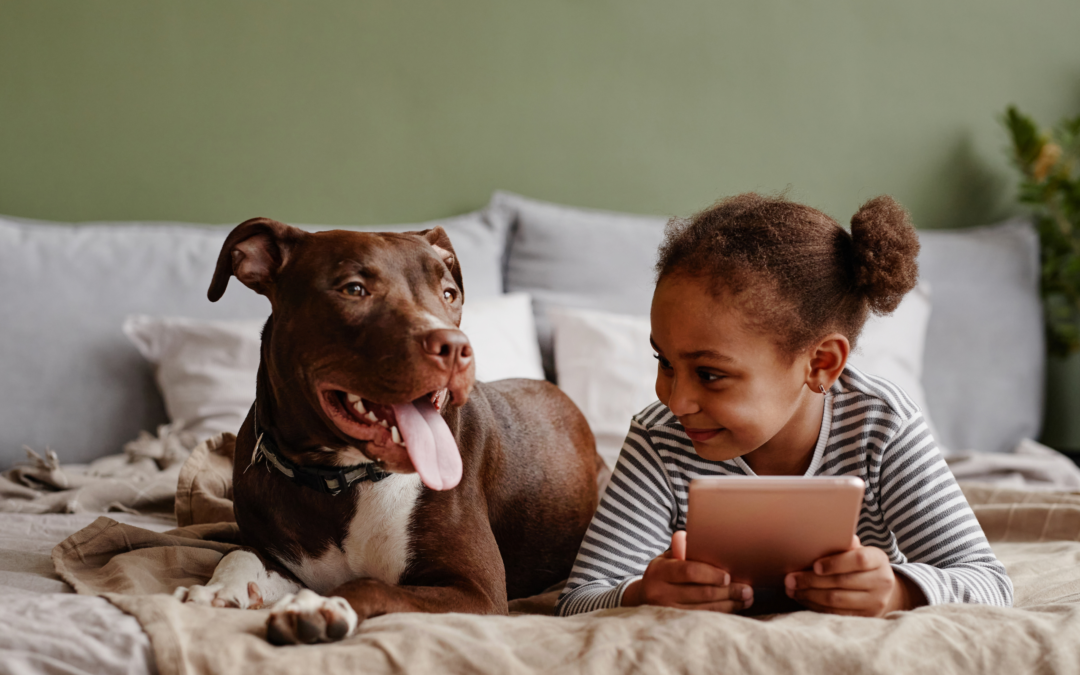It’s no secret that dogs can bring you immense joy. They can provide snuggles on what would have been an empty couch while you binge-watch Netflix. They can be your running partner when you’re training for a marathon. They can be your best friend. But did you know they can help teach children to read?

Intermountain Therapy Animals (ITA) is the premier organization for the Reading Education Assistance Dogs (R.E.A.D.) program. Imagine a child who is struggling to learn how to read being given confidence and self-esteem while improving their reading skills.
Dogs provide a special kind of nonjudgmental assistance and unconditional love to children that make them the perfect “teachers.”
Debbi Cole is one of the many amazing individuals who gives her time to this worthy cause. She is currently a Regional Director for READing Paws in the Northwest Florida Chapter and a licensed Evaluator, Instructor, and volunteer for ITA and R.E.A.D. “The child in essence becomes the teacher to the dog as they strive to learn to read with the additional aid of the trained handler,” she explained.
This is just one of the many life-changing roles a therapy dog can have. As part of a handler/dog team, a therapy dog works to enhance the quality of life through the human-animal bond. Therapy teams work with people who are experiencing difficult moments in their lives from accident and injury to disease or loneliness. Nancy Bown, CPDT-KA is also an ITA evaluator and works with Debbi to ensure every team is ready for their jobs.
Becoming a therapy team doesn’t happen overnight though. It takes a lot of hard work and dedication on both sides of the team. First and foremost is the importance of being people-oriented and sociable, and they must be willing to engage with others and enjoy doing so. You have to be prepared for the unexpected and be able to adapt to ever-changing environments. Debbi explained, “The dog should be comfortable being touched, even with awkward strokes, and be able to enjoy visiting even in distracting situations. They must be reliable and predictable, responsive and controllable at all times, and able to cope with stressful situations.”
The dog is responsible for being outgoing, friendly, and confident in new settings; while the handler should be relaxed, social with strangers, attentive, interactive, and encouraging to your animal. The handler must always serve as an advocate for their animal and be the voice that they don’t have. Therapy dogs must be at least 18 months old and have a health screening with a veterinarian. The first step is to begin obedience classes to perfect their skill sets. Just like people, dogs learn and mature at different rates, so there is no cut-and-dried timeline for when a dog will be ready to get out in the field.

Once the obedience skills are achieved, then the handler attends an ITA workshop where they learn how to become an effective team. They focus on skills like mutual respect, boundaries, and learning problem-solving techniques. It’s important to show compassion for those you work with and not sympathy.
Mary Burch, Ph.D., said eloquently,
“The most important part of the therapy dog equation is the client who will be receiving services. If you mainly want to spend some time with your dog, and your primary focus isn’t the senior citizen who is profoundly lonely, the child who is struggling to read, or the teenager who has endured a lifetime of abuse, you should choose another activity. There are many engaging and fun things you can do with your dog. Therapy work is for those who sincerely want to help others.”
If you decide that this describes you and you take the ITA workshop, then your team must pass a three-part screening which includes skills, aptitude, and a health exam by a veterinarian who ensures the health and physical ability to perform therapy work.
The skills and aptitude screenings evaluate how well the animal and handler work together to determine what environments they are best suited for. The next step is to shadow other ITA teams and do visits with ITA directors for their first two visits to facilities in the area.
After all of this long and rigorous training, the prepared Therapy Animal Team is ready to venture out on their own in the wonderful world of therapy work. These incredible therapy animal teams make huge differences at many local facilities like Boys & Girls Clubs, nursing homes, rehabilitation centers, residential treatment centers, the Emerald Coast Children’s Advocacy Center, Walton & Okaloosa public schools, youth detention programs, hospice facilities, and libraries. Just like humans, dogs change physically and emotionally as they mature.
This is why ITA requires dogs to be reevaluated every two years with testing given at the Dog-Harmony building in Santa Rosa Beach. Aside from therapy dogs, many other species make wonderful visiting animals that are capable of forming strong human-animal bonds — cats, birds, rabbits, goats, domestic rats, hamsters, guinea pigs, ducks and chickens, miniature pigs, llamas, cows, and horses are just a few. According to News in Health studies, interacting with animals can decrease your cortisol and lower your blood pressure. Other studies have shown that being around animals can reduce loneliness, increase feelings of social support, and boost your mood. In today’s fast-paced world, who doesn’t want less stress and more happiness in their life?

The importance of therapy dogs and the incredible impact they can have is becoming increasingly recognized. Therapy Patient Connections (TPC) is a human service organization founded to educate and practice the powerful benefits of the human-animal bond. Volunteers and their pets make regular visits to patients and clients who are physically or developmentally disabled, emotionally or psychologically impaired, lonely, or suffering in any way. All of their amazing services are free of charge to both clients and the facility. TPC animals and handlers are screened, trained, licensed, and insured before participating in animal-assisted interactions (AAI).
Deciding to volunteer your time and energy to participate in animal-assisted interactions is not a casual undertaking. Volunteers must be prepared to work with patients/ clients during the most difficult and stressful times in their lives. It is a serious commitment but one that comes with insurmountable rewards. Imagine the smile you can put on the face of a child recovering from surgery. The companionship a therapy dog could provide to an elderly person who has recently lost their significant other. The love and support that could be given to a person struggling with an illness. These are immeasurable gifts that will last a lifetime.

